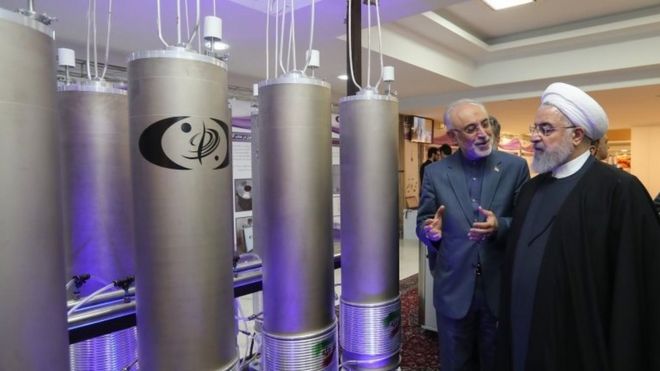 AFP
AFP
Iran has pulled out of key commitments under the 2015 international nuclear deal, a year after it was abandoned by the US.
President Hassan Rouhani said Tehran would keep enriched uranium stocks in the country and not sell them abroad.
He also threatened to resume production of higher enriched uranium in 60 days.
The accord is aimed at curbing Iran's nuclear ambitions in return for sanctions relief, but Iran-US tensions have risen since Washington quit.
Iran's economy has since been hit by renewed US sanctions.
The announcement comes after US Secretary of State Mike Pompeo made an unscheduled visit to Iraq, and a US aircraft carrier was deployed to the Gulf region.
US officials have reported threats to US forces and their allies from Iran, but have given few details about the exact nature of the threat.
- Iran nuclear deal - all you need to know
- How reinstated sanctions have hit Iranians
- Is it about to become more expensive to fill my car?
Why is the nuclear deal in crisis?
The landmark nuclear deal agreed by Iran and the five permanent members of the UN Security Council - the US, UK, France, China and Russia - plus Germany (the P5+1) - was thrown into flux when President Trump announced the US withdrawal one year ago.
The value of Iran's currency has since been pushed to record lows, its annual inflation rate quadrupled and foreign investment driven away.
Despite this, Iran has upheld its commitments to the deal, according to inspectors from the International Atomic Energy Agency (IAEA) - the body charged with monitoring Iran's nuclear activity.
European backers of the deal, who oppose reinstating sanctions, have been trying to find ways to salvage it. This includes the establishment of a special payments system to help international companies who want to continue trading with Iran to bypass sanctions.
But they have also warned Iran that it must continue to comply with all aspects of the deal, especially the elements relating to nuclear activity.
However, under the deal - known as the Joint Comprehensive Plan of Action (JCPOA) - Iran stated that it would treat any reintroduction of sanctions "as grounds to cease performing its commitments... in whole or in part".
Why is there such hostility between the US and Iran?
Tensions between the US and Iran can be traced back to Iran's Islamic Revolution in 1979, which overthrew the pro-Western Shah and established a radical anti-US regime in its place.
President Trump has taken a particularly hard line towards Iran since he took office in 2016.
His administration wants to renegotiate the nuclear deal and widen its scope so that it also curbs Iran's ballistic missile programme and "malign" activities in the Middle East.
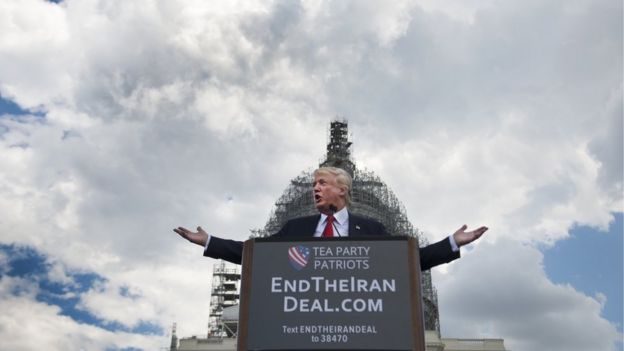 GETTY IMAGES
GETTY IMAGES
The US has recently raised the pressure on Iran, with two significant moves in April:
- It ended exemptions from sanctions for five of Iran's main customers still buying oil, including China, India and Turkey
- It blacklisted Iran's elite Islamic Revolution Guard Corps, designating it a foreign terrorist group
And earlier this week, National Security Adviser John Bolton said the US was deploying an aircraft carrier to the Middle East following a number of "troubling and escalatory indications and warnings" from Iran.
In response to the US ending the sanctions waivers, Iran repeated threats to block the strategic Strait of Hormuz, a critical passageway for the world's oil exports. However, it has not done so before and experts see this move as unlikely.

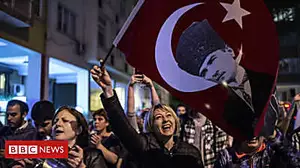


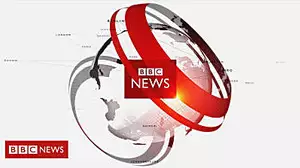

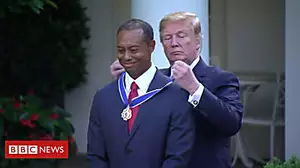

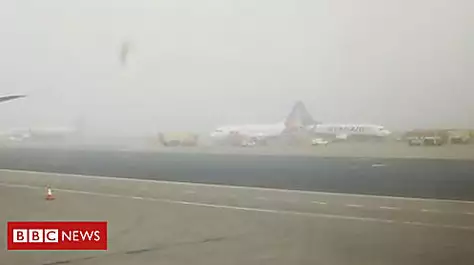

No comments:
Post a Comment